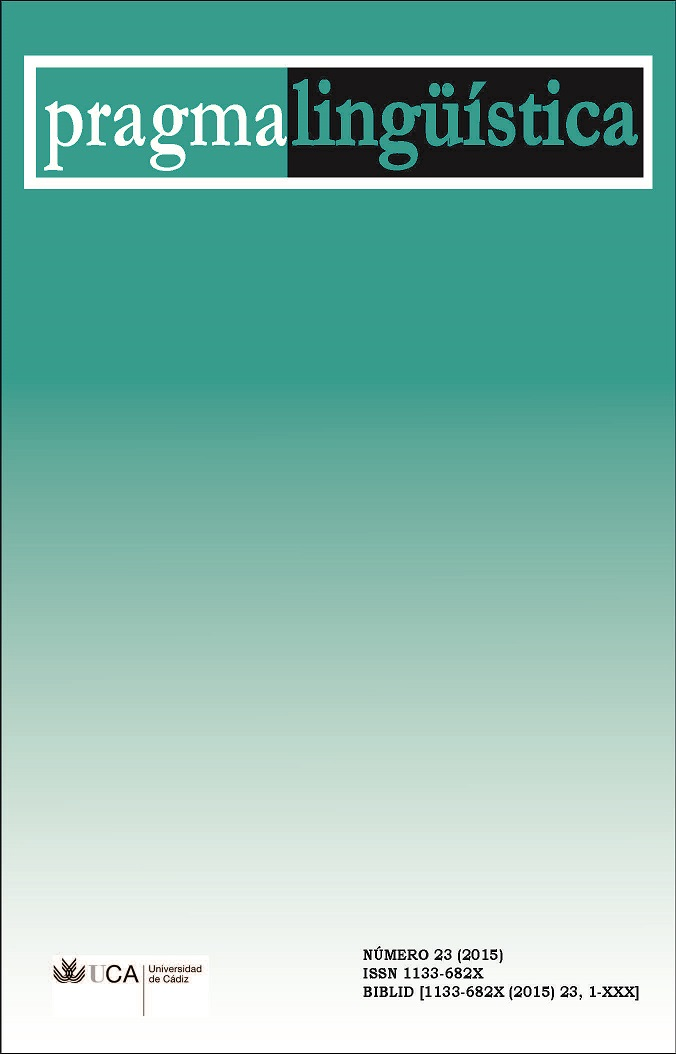La regla de introduccón de la disyunción: Consideraciones sintácticas y semánticas

DOI
https://doi.org/10.25267/Pragmalinguistica.2015.i23.08Información
Resumen
La teoría de la lógica mental sostiene que la regla de introducción de la disyunción, que es una regla válida en la lógica clásica, no es utilizada de manera natural por la mente humana. Sin embargo, un estudio realizado por Orenes y Johnson-Laird sugiere que esta teoría no es correcta porque existen casos en los que parece que los individuos aplican la mencionada regla. Orenes y Johnson-Laird explican sus resultados en base a la teoría de los modelos mentales. No obstante, en este trabajo, trato de mostrar que, si se asume que las personas recuperan, por medio de un análisis semántico de posibilidades, las formas lógicas reales de las proposiciones antes de utilizar reglas formales, la teoría de la lógica mental también puede explicar los resultados logrados por Orenes y Johnson-Laird. Del mismo modo, incluyo algunos comentarios sobre la posibilidad de que ambas teorías sean complementarias y se hallen relacionadas.
Palabras clave
Descargas
Agencias de apoyo
Cómo citar
Licencia
Derechos de autor 2018 Pragmalingüística

Esta obra está bajo una licencia internacional Creative Commons Atribución-NoComercial-CompartirIgual 4.0.
Citas
BRAINE, M. D. S. & O'BRIEN, D. P. (Eds.) (1998a): Mental Logic, Mahwah, NJ: Lawrence Erlbaum Associates, Inc., Publishers.
BRAINE, M. D. S. & O'BRIEN, D. P. (1998b): “The theory of mental-propositional logic. Description and illustration”, Braine, M. D. S. & O'Brien, D. P. (Eds.): Mental Logic, Mahwah, NJ: Lawrence Erlbaum Associates, Inc., Publishers, pp. 79-89.
BRAINE, M. D. S. & O'BRIEN, D. P. (1998c): “A theory of ‘if’: A lexical entry, reasoning program, and pragmatic principles”, Braine, M. D. S. & O'Brien, D. P. (Eds.): Mental Logic, Mahwah, NJ: Lawrence Erlbaum Associates, Inc., Publishers, pp. 199-244.
BRAINE, M. D. S., REISER, B. J., & RUMAIN, B. (1998): “Evidence for the theory: Predicting the difficulty of propositional logic inference problems”, Braine, M. D. S. & O'Brien, D. P. (Eds.): Mental Logic, Mahwah, NJ: Lawrence Erlbaum Associates, Inc., Publishers, pp. 91-144.
BYRNE, R. M. J. & JOHNSON-LAIRD, P. N. (2009): “‘If’ and the problems of conditional reasoning”, Trends in Cognitive Science, 13, pp. 282-287.
JOHNSON-LAIRD, P. N. (1983): Mental Models. Towards a Cognitive Science on Language, Inference, and Consciousness, Cambridge, MA: Harvard University Press.
JOHNSON-LAIRD, P. N. (2001): “Mental models and deduction”, Trends in Cognitive Science, 5, pp. 434-442.
JOHNSON-LAIRD, P. N. (2006): How We Reason, Oxford, UK: Oxford University Press.
JOHNSON-LAIRD, P. N. (2010): “Against logical form”, Psycholog-ica Belgica, 5(3&4), pp. 193-221.
JOHNSON-LAIRD, P. N. (2012): “Inference with mental models”, Holyoak, K. J. & Morrison, R. G. (Eds.): The Oxford Handbook of Thinking and Reasoning, New York, NY: Oxford University Press, pp. 134-145.
JOHNSON-LAIRD, P. N. & BYRNE, R. M. J. (2002): “Conditionals: A theory of meaning, pragmatics, and inference”, Psychological Review, 109, pp. 646-678.
JOHNSON-LAIRD, P. N., BYRNE, R. M. J., & GIROTTO, V. (2009): “The mental models theory of conditionals: A reply to Guy Politzer”, Topoi, 28, pp. 78-80.
LÓPEZ ASTORGA, M. (2013): “Are conditional and disjunction really comparable?” Universum, 28(2), pp. 229-242.
OAKHILL, J. & GARNHAM, A. (Eds.) (1996): Mental Models in Cognitive Science. Essays in Honour of Phil Johnson-Laird, Hove, UK: Psychology Press.
O'BRIEN, D. P. (2009): “Human reasoning includes a mental logic”, Behavioral and Brain Sciences, 32, pp. 96-97.
ORENES, I. & JOHNSON-LAIRD, P. N. (2012): “Logic, models, and paradoxical inferences”, Mind & Language, 27(4), pp. 357-377.






